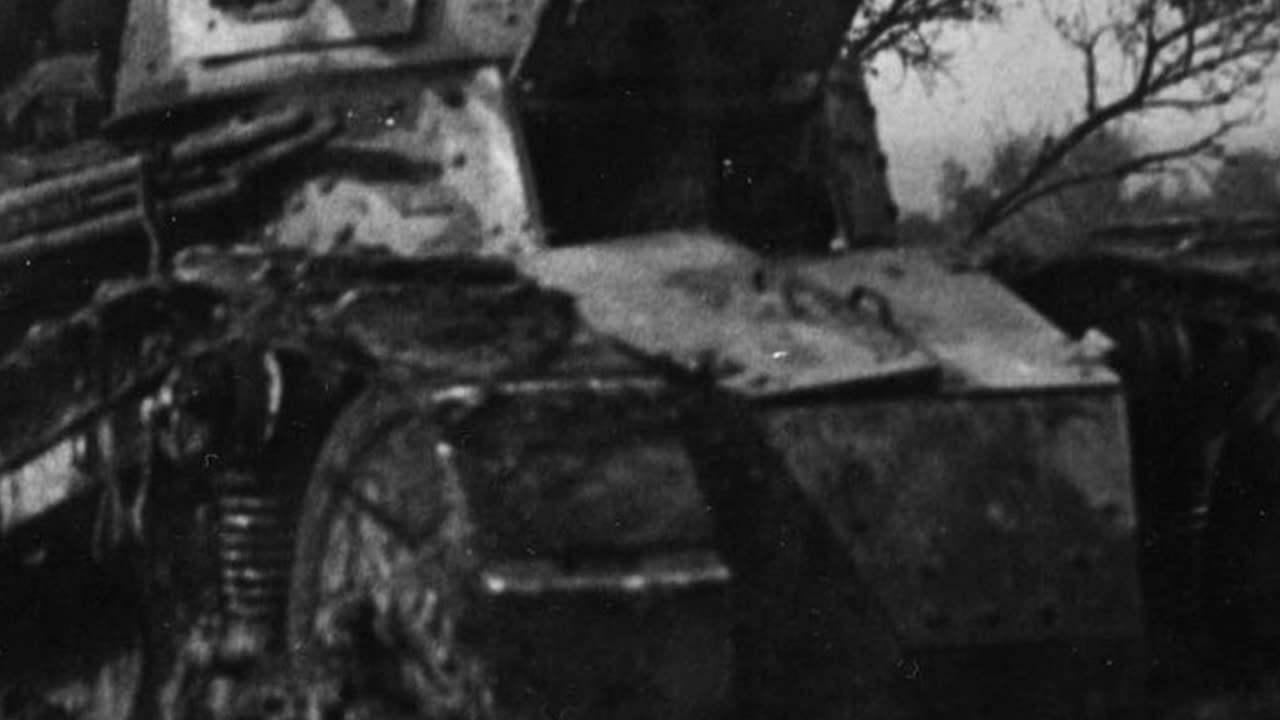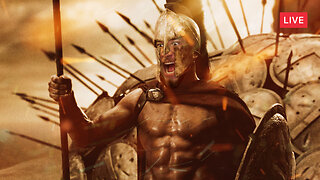Premium Only Content

General George S Patton before WW2
George S. Patton was an American Army general who gained fame during World War II for his leadership skills and strategic military tactics. However, there are many interesting facts about Patton that are often overlooked or unknown. Before World War II, Patton was already a remarkable figure with a rich background and a strong personality. In this video, we will delve into some lesser-known facts about the life of George S. Patton before he became the legendary World War II hero.
One of the most interesting facts about Patton is his family history. George Smith Patton Jr. was born into a family with a strong military tradition. His grandfather, John M. Patton, fought in the American Civil War, and his father was a successful lawyer and a devoted follower of the Confederate States of America. Growing up, Patton was surrounded by stories of bravery and military glory, which greatly influenced his character and fueled his passion for the military.
Another lesser-known fact about Patton is that he was an Olympic athlete. In 1912, he competed in the modern pentathlon at the Stockholm Olympics. The pentathlon consisted of five events: shooting, fencing, swimming, cross-country running, and horseback riding. Patton performed exceptionally well in the shooting and fencing events, but unfortunately, he was disqualified due to his horse not being able to cross a fence. Despite this setback, Patton's participation in the Olympics showcased his physical and mental strength, which would later prove to be crucial in his military career.
Patton's love for the military led him to attend the US Military Academy at West Point, where he excelled in both academics and military training. He graduated in 1909, and in 1912, he was commissioned as an officer in the cavalry. This marked the beginning of Patton's long and illustrious military career.
In 1916, Patton was sent to Mexico to participate in the American expeditionary force against Pancho Villa. During his time there, he proved to be a fearless and skilled leader, earning the respect of his superiors and comrades. His actions in Mexico served as a precursor to his future military achievements, as he demonstrated his ability to adapt to new environments and lead men into battle.
One of the most controversial aspects of Patton's life was his belief in reincarnation. He believed that he was a reincarnated Greek warrior and spent much of his free time studying Greek mythology. This belief influenced his outlook on war and his leadership style, where he saw himself as a heroic figure destined for greatness. This somewhat unconventional belief is said to have given Patton a sense of invincibility, which was evident in his charismatic and fearless leadership in battle.
In 1938, Patton was assigned to Fort Myer, Virginia, where he was responsible for organizing the American tank forces. It was during this time that he met and formed a close friendship with Dwight D. Eisenhower, who would later become the Supreme Commander of the Allied forces in Europe during World War II. This friendship proved to be instrumental in Patton's future military career, as Eisenhower was one of his strongest supporters and frequently promoted him to higher positions.
Patton's military career was not without its setbacks. In 1943, he was reprimanded and temporarily removed from his command for slapping and verbally abusing two soldiers who were suffering from shell shock. This incident tarnished his reputation and briefly threatened his career. However, Patton's strong leadership skills and his close friendship with Eisenhower saved him from dismissal, and he was able to redeem himself and return to command shortly after.
Despite his turbulent past, Patton's contributions to World War II are unparalleled. He played a crucial role in the Allied invasions of North Africa and Sicily, and his leadership and strategic military tactics were pivotal in the Allied victory in the Battle of the Bulge. His infamous "Patton Speech" to the Third Army before the Allied invasion of Normandy is still remembered as one of the most inspiring speeches in military history.
In conclusion, George S. Patton's life was filled with interesting and often controversial events. However, it was his strong character, military prowess, and unshakable belief in himself that made him a legendary figure in American history. Before World War II, Patton had already established himself as a remarkable leader and a military genius, and his actions during the war solidified his place as one of the greatest military leaders of all time. His legacy continues to inspire future generations and his story serves as a testament to the power of determination, courage, and leadership.
-
 1:11:33
1:11:33
Wendy Bell Radio
7 hours agoWeekends With Wendy
41.9K161 -
 1:35:07
1:35:07
Man in America
1 day agoPeptides: Ultimate Health Hack… or Big Pharma Gila Monster POISON? w/ Dr. Diane Kazer
160K80 -
![The Legend of Zelda: Oracle of Seasons | Part 3 [Finale]](https://1a-1791.com/video/fww1/d1/s8/1/F/H/N/B/FHNBy.0kob-small-The-Legend-of-Zelda-Oracle-.jpg) LIVE
LIVE
JdaDelete
2 hours agoThe Legend of Zelda: Oracle of Seasons | Part 3 [Finale]
281 watching -
 LIVE
LIVE
MrR4ger
15 hours agoNEW ERA FOR DaD?? - DARK and DARKER HELLDIVERS 2 w/ @M3thods AFTER
298 watching -
 32:55
32:55
The Connect: With Johnny Mitchell
1 day ago $6.55 earnedInside America's LARGEST Pot Trafficking Gang: How Florida Fishermen Became #1 Most Wanted Cartel
68K16 -
 LIVE
LIVE
Biscotti-B23
6 hours ago $2.55 earned🔴 LIVE EARLY ACCESS RANKED GRIND ⚽ THE BEST FOOTBALL GAME OUT 💥 REMATCH
105 watching -
 8:00:02
8:00:02
SpartakusLIVE
22 hours agoFIRST Pick of the Fourth Round for the $100,000 Tournament
104K3 -
 16:18
16:18
Mrgunsngear
15 hours ago $24.82 earnedBlack Aces Tactical S4 Tactical - Benelli M4 Clone But Does It Work?
137K16 -
 2:05:15
2:05:15
Right Side Broadcasting Network
16 hours agoLIVE REPLAY: President Trump Attends UFC Fight 314 - 4/12/25
162K15 -
 2:07:42
2:07:42
BlackDiamondGunsandGear
15 hours agoWho’s in Town for This Stream?
86.1K5